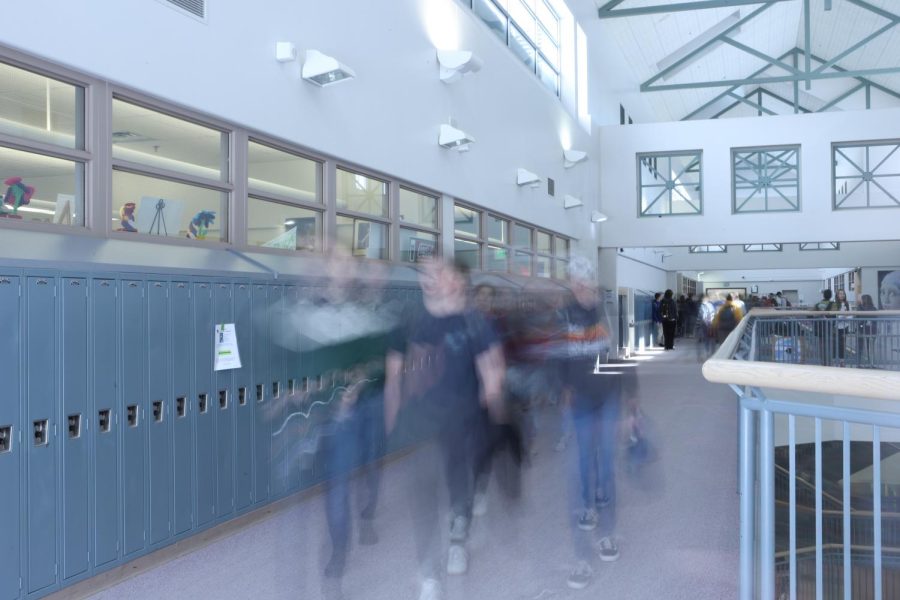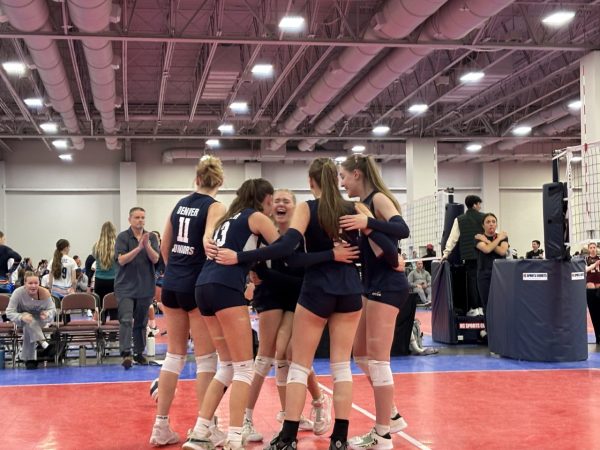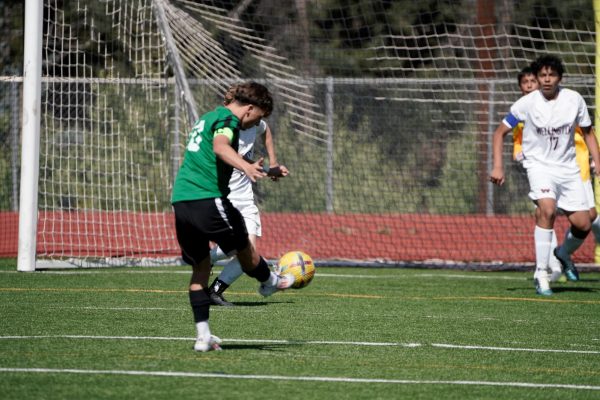Will Students Attend?
A 2016 attendance policy is being enforced once again
Several Conifer students walking the halls
The number of students in Jefferson County Schools who qualify as “chronically absent” –meaning those who have missed more than 17.5 school days each year–has increased from 24% to over 30% over the past year. Nearly 25,000 students out of the 87,000 students enrolled in the district are now considered chronically absent. In response to this trend, Conifer High School reinstated an old attendance policy on January 24, 2022, that is designed to address chronic tardiness, a related issue that is seen as contributing to chronic absences.
“It’s become an increasing problem and we didn’t have this issue last year because we were mostly hybrid so we didn’t have tardies,” Principal Wesley Paxton said.
The policy, originally implemented in 2016, punishes students who have more than two unexcused tardies a month. The decision to revive the policy was made by Paxton after discovering that numerous students, primarily upperclassmen, had been regularly arriving at school late in recent months.
“What we’re doing is we are trying to enforce good habits of showing up on time, which you need to do for any job. The consequences are if they have more than two tardies then they have lunch detention in the cafeteria, ” Paxton said.
The Jefferson County school district has seen a 2% increase in tardies over the past year, with the average attendance rate dropping from 90.9% in 2020-2021 to 88.9% so far this year, according to the Colorado Department of Education.
The increases in tardies have been disrupting class time and throwing off lesson plans for several teachers. Many teachers agree that the policy is helpful in making lessons more time-efficient.
“Having kids show up late means that we start a little bit later,” Band director Sean Cartner said. “And because the nature of band is more group-oriented it is definitely frustrating,”
Since the onset of the pandemic in March 2020, tardiness among students at Conifer has increased significantly. Even as the unpredictability caused by the pandemic has begun to subside, many students are now simply accustomed to arriving at school late. Some students who struggle with chronic tardiness are in a pattern of arriving to class a few minutes late, while others are arriving halfway through class. The reasons for tardiness can vary widely, but not all students think the reinstated policy is effective at helping them arrive to class on time, in part because a few believe the punishments are too light.
“I’m late every day, and always by a couple of minutes. The problem is that I’m lazy and enjoy sleeping,” junior Corey Neumeier said. “The incentive not to be tardy is lunch detention, and who cares about that?”
Students who often arrive on time believe that the rules should be less strict in case of events that the student arriving late could not control, like traffic, car problems, and other unpredictabilities.
“One month is a very long time for just two tardies,” freshman Logan Tschakert said. “I think it is a good policy but it needs to be adjusted a little bit.”
Since 2016, Conifer has periodically paused enforcement of the policy for different reasons, most recently because of the uncertainty created by the pandemic. The high school also does not enforce the policy if there is any new snow on the ground. In the fall of 2019, after the policy was re-enforced after a pause, the number of students reported as tardy dropped from 101 to 35 in a little over a month.
Whether the policy will have the same effect this year is still unclear. In the four weeks since Conifer began enforcing the policy again not much appears to have changed, but the administration remains confident that it will prove to be an effective deterrent.
“This year we have not seen a significant reduction in tardies,” Vice Principal Gregory Meiner said. “But when kids realize that we are actually enforcing it and that there will be lunch detention it will come down quickly.”









